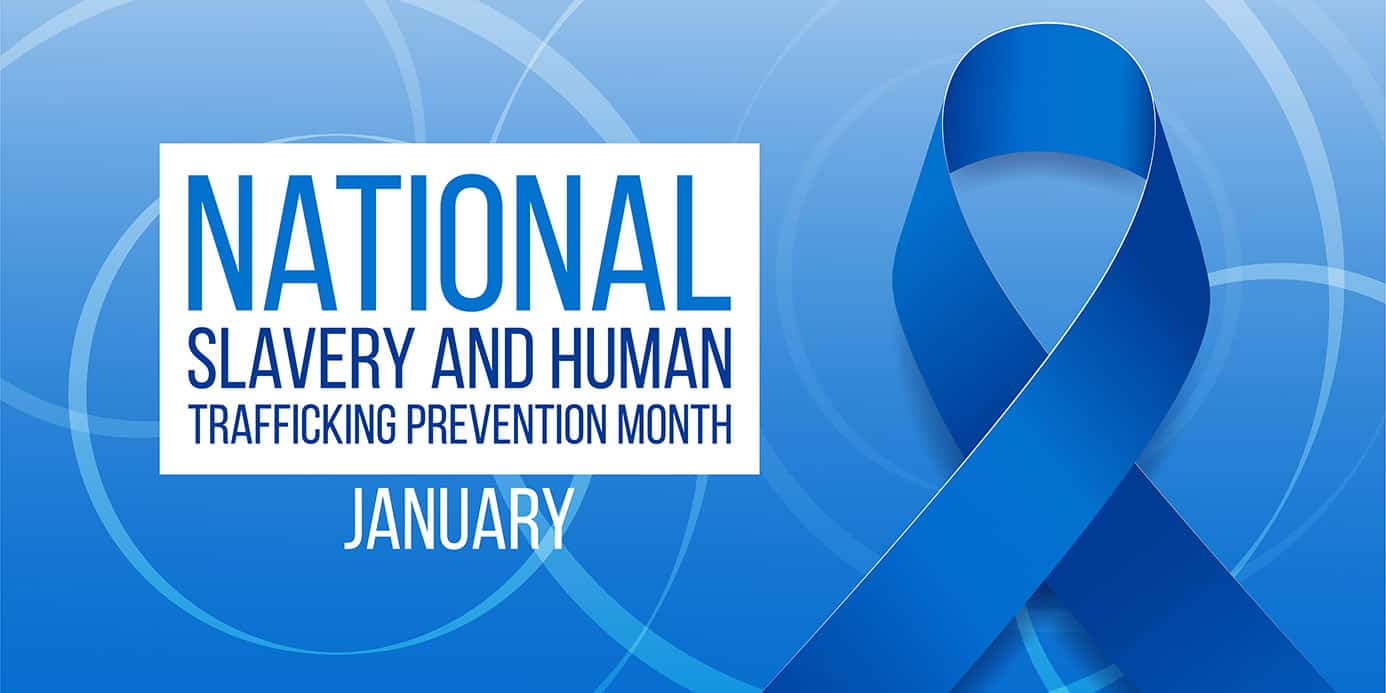By Allison Mercer, Victim Advocate/Case Manager, Common Ground
According to the U.S. Department of Justice, human trafficking is a crime that involves compelling or coercing a person to provide labor or services, or to engage in commercial sex acts. The coercion can be subtle or overt, physical or psychological.
There is no single profile of a trafficking victim. Victims of human trafficking can be anyone—regardless of race, color, national origin, disability, religion, age, gender, sexual orientation, gender identity, socioeconomic status, education level or citizenship status. Just as there is no one type of trafficking victim, perpetrators of this crime also vary. Traffickers can be foreign nationals or U.S. citizens, family members, partners, acquaintances and strangers. They can be male or female and come from any industry. They can act alone or in organized groups.
This crime is prevalent in Oakland County and beyond, and government and non-profit organizations, including Common Ground, have been working to fight the crimes and support its victims.
The creation of a Human Trafficking Unit within the Oakland County Prosecutors Office in January 2021 was an important step toward using innovative methods for fighting this crime in our community. Among others, the Madison Heights Police Department Special Investigation Unit has brought an impressive number of cases to the unit. Many of these victims were then referred to Common Ground’s Victim Assistance Program for Human Trafficking through the Prosecutor’s Office. This chain of collaboration led to a serendipitous phone call between the Madison Heights Police Department and Common Ground’s Victim Assistance Program for Human Trafficking. Through this call, further innovation was made possible by the creation of a direct collaboration that is now known as Michigan Ops Team Investigating Violent Exploitation (MOTIVE).
MOTIVE’s mission statement is as follows:
Our MOTIVE is to provide a survivor-centered approach to help those escape exploitation, provide individualized support towards recovery and investigate those responsible.
What does this mean in action? After signing a Memorandum of Understanding between Madison Heights Police Department and Common Ground in July 2021, a human trafficking advocate from Common Ground now works directly within the police department’s special investigation unit. By combining the resources of these two agencies, MOTIVE provides immediate on-site assistance to survivors of human trafficking in southeast Michigan and beyond. MOTIVE combines expertise in investigations, advocacy, intelligence and outreach to pursue impactful joint operations in this discipline.
A major gap to service in the past was that once a victim was identified by police, there was no process to support victims while an investigation moved forward. Often victims of trafficking have unique needs, so for them the barriers to receiving help independently can be daunting. This is where the human trafficking advocate bridges the gap in service and acts as a case manager, helping victims achieve their individual goals and fulfill their needs.
This collaboration allows law enforcement more time to focus on investigating those responsible for victimization while the advocate helps survivors navigate the complicated path toward recovery that can include: working with the medical and mental health system; dealing with the criminal justice system; housing or relocation assistance; substance treatment programs; immigration and identification challenges; signing up for government assistance programs; and securing transportation.
MOTIVE values survivor feedback to continually adapt responses to human trafficking in the community. At the beginning of the initiative one survivor shared the following:
“I wish the Advocate was at the hotel right away, I would’ve felt more safe. I didn’t trust law enforcement and almost didn’t go back to the station to even meet with the Advocate because I was scared and thought I was going to be arrested.”
This is a common response of human trafficking victims. Often they have been told police won’t help or have had prior interactions shaping their feelings about law enforcement and fear they will be treated as an offender. After MOTIVE received this response, procedures were changed, and now an advocate is on-scene ready to meet with the victim to build trust and rapport, and to offer help.
Recently, the team had another interaction with a survivor who shared:
“I didn’t know a service like yours existed. You’re the first cop who I felt like actually cares about me as a person.”
Combatting human trafficking within our community takes collaboration with other law enforcement agencies as well. Since the creation of MOTIVE, the team has worked with Homeland Security Investigations (HSI), Saginaw County Sheriff’s Office, Monroe County Sheriff’s Office, Oakland County Sheriff’s Office, Oakland County Narcotics Enforcement Team (NET), Detroit Police Department, Southfield Police Department and Birmingham Police Department on human trafficking cases.
Innovation in human trafficking response is a critical service to the community, and Oakland County is a leader in these innovations. For more information about MOTIVE, Madison Heights Police Department or Common Ground please email amercer@cghelps.org. To make a donation to MOTIVE, please email jkapuscinski@commongroundhelps.org.
About the author: Allison Mercer has worked in victim advocacy for five years and has been at Common Ground since December 2019. She obtained a Bachelor of Arts in Criminal Justice and Sociology from Oakland University along with a Master of Science in Law Enforcement Intelligence and Analysis from Michigan State University. She recently completed an internship through the U.S. Department of Probation, Eastern District of Michigan. Allison is an experienced Victim Advocate with a demonstrated history of working with Human Trafficking, Child Abuse/Neglect, Sexual Assault, Trauma and Foster Care.





